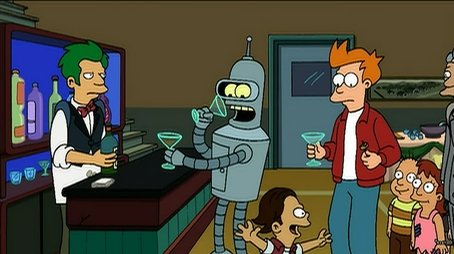
Sorry, we have not watched this yet.

Leela meets up with her former orphanarium playmate Adlai Atkins, now a plastic surgeon, who offers to grant Leela surgery that will give her two eyes. Meanwhile, Bender adopts twelve orphans in order to collect $1200 in government stipends.
Sorry, we have not watched this yet.